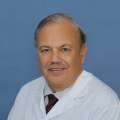As a two-time breast cancer survivor, Teri Boudreaux is grateful for the time she gets to spend with her family, whether it's traveling with her husband, playing with her grandchildren, hiking, relaxing on the beach, or picking up new hobbies such as pickleball.
Yet, amidst all this, there’s a persistent fear that lingers in the back of her mind: the possibility of the cancer coming back.
“I think that's what a lot of us survivors are most afraid of is recurrence of breast cancer,” said Boudreaux. “It’s a lifelong concern.”
Boudreaux was first diagnosed with triple negative breast cancer in 1990 when she was just 38 years old. After going through treatment, she spent nearly two decades cancer-free.
Then in 2017, she was tested for the BRCA gene, which came back positive. At the same time, she noticed a lump in her breast during a self-check and it turned out to be early-stage hormone-receptor (HR) positive/HER2 negative breast cancer.
This type of breast cancer is the most common subtype of the disease, accounting for nearly 70% of breast cancer cases in the United States.
Current treatment includes endocrine therapy — which blocks or lowers the levels of estrogen production so cancer cells can't use it to grow and spread — but there is still a risk of the cancer coming back years later after the initial diagnosis. For patients with stage 2 disease, there is a 27% to 37% risk of the cancer returning and for stage 3 disease there’s a 46% to 57% chance of the cancer coming back.
Boudreaux was diagnosed with stage 2 disease and didn’t like her chances.
“I didn’t want to look on the Internet because every time I did, I got scared from everything I read,” said Boudreaux.
So, when her neighbor, who went through treatment for breast cancer a few years earlier, recommended she go to the UCLA Health Santa Clarita Cancer Care Center, she made an appointment with oncologist Rena Callahan, MD, to hopefully get some answers.
The start of the NATALEE Clinical Trial
While discussing her options, Dr. Callahan, associate clinical professor of medicine at the David Geffen School of Medicine at UCLA and investigator in the UCLA Health Jonsson Comprehensive Cancer Center, suggested Boudreaux join a clinical trial that was looking at the benefit of adding the targeted therapy drug ribociclib to conventional hormonal therapy for the adjuvant treatment of HR-positive, HER2-negative early-stage breast cancer.
“Endocrine therapy alone has saved countless lives, yet some patients still experience a recurrence of stage 4 disease,” said Dr. Callahan. “These recurrences are both devastating and often life-limiting. While ribociclib was already known to extend survival in advanced cases, its potential to prevent recurrence in early-stage breast cancer offers hope for curing many more patients.”
Ribociclib is a cyclin-dependent kinase inhibitor that works by blocking the activity of cyclin-dependent kinase 4/6 enzymes, which promote cell division and cancer growth.
In the early 2000s, a team of researchers led by oncologist Dennis Slamon, MD, PhD, chair of hematology-oncology at the David Geffen School of Medicine at UCLA and director of clinical and translational research at the UCLA Health Jonsson Comprehensive Cancer Center, led the discovery program that found that cyclin-dependent kinase inhibitors are effective in treating HR-positive breast cancer. Their work ultimately helped lead to the U.S. Food and Drug Administration (FDA) approval of ribociclib and other related drugs to treat advanced, metastatic breast cancer.
Building on this past research, the team opened an international clinical trial, called NATALEE, that looked at ribociclib in women with early-stage disease.
Boudreaux was one of more than 5,000 women who enrolled.
“I felt like this is a good opportunity to hopefully prevent recurrence and help other women,” said Boudreaux.
Participants were randomly assigned to either receive ribociclib plus endocrine therapy, consisting of a nonsteroidal aromatase inhibitor, or to receive endocrine therapy alone.
The median duration on study follow-up was 34 months, with three-year and two-year duration of ribociclib completed by 20% and 57% patients respectively.
Promising results lead to FDA approval
The results of the study, published in the New England Journal of Medicine in March 2024, showed that the addition of ribociclib with endocrine therapy significantly extended the time a person with stage 2 or 3 HR-positive, HER2-negative early breast cancer lives without the cancer returning.
“We found that adding ribociclib to the standard hormone therapy resulted in a relative reduction in the recurrence rate by as much as 25%,” said Dr. Slamon, who was the first author of the study and principal investigator on the trial. “And that’s huge for this the group of patients, who make up a majority of breast cancer cases.”
The study’s secondary endpoint, distant disease-free survival and recurrence-free survival, also favored treatment with ribociclib and endocrine therapy. The distant-free survival rates were 90.8% for the combination arm, compared to 88.6% for endocrine therapy alone. Patients on the combination had a 91.7% recurrence-free survival compared to 88.6% for endocrine therapy alone.
The side effects were similar in both groups, with the most common issues being neutropenia, arthralgia and liver-related events.
These findings ultimately led to the FDA approving ribociclib in combination with hormonal therapy for the adjuvant treatment of HR-positive, HER2-negative early-stage breast cancer. It was approved on Sept. 17.
“These results change how we evaluate and treat patients,” said Dr. Slamon. “This is a new option that we can now offer patients that can help further minimize their risk of cancer returning.”

Moving forward
Boudreaux was on the treatment arm of the clinical trial and it has been three years since she finished treatment.
“I didn’t really have any side effects and honestly didn’t have any issues during the clinical trial,” said Boudreaux. “I’m feeling really good and looking forward to spending more time with my family and grandchildren.”
The former nurse will continue to follow up with Dr. Callahan, but is a little bit more at ease since going on the trial. And now she’s looking forward to traveling with her retired husband and staying active.
“We love going on cruises and going to Europe,” said Boudreaux. “And we just discovered pickleball, it’s a new addiction. We play almost every day.”
Take the Next Step
Learn more about Cancer Services and Breast Cancer Care.





